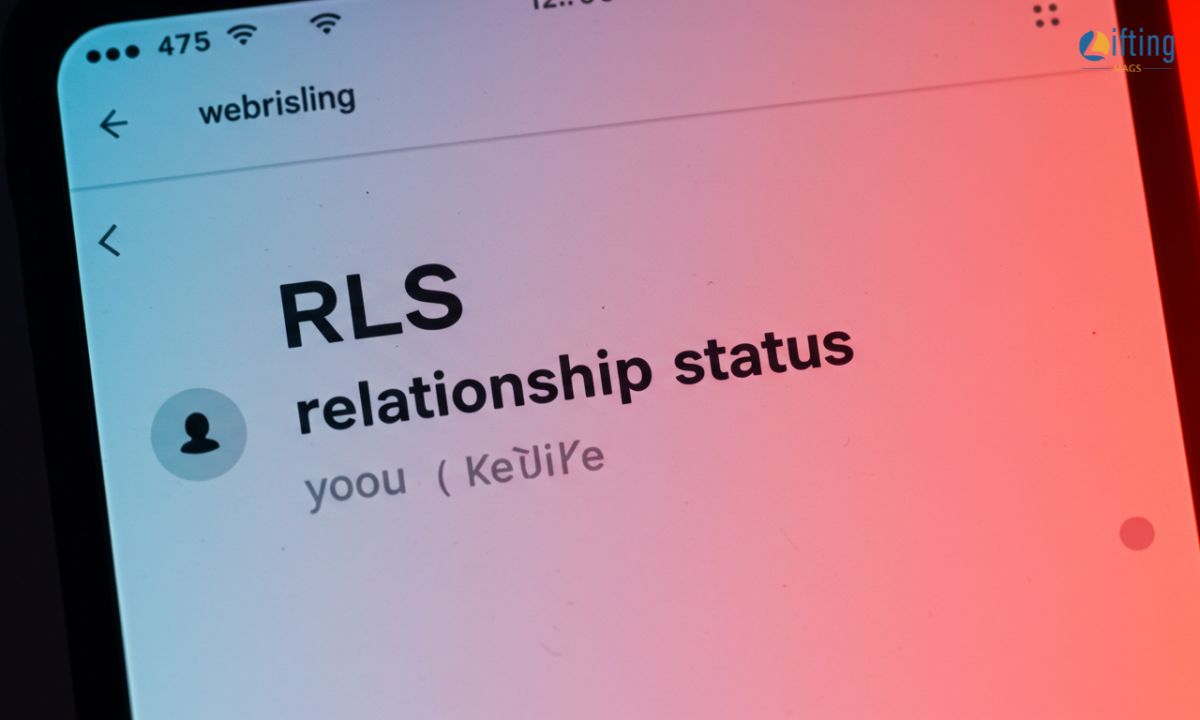In today’s fast-paced digital landscape, abbreviations and slang terms have become ubiquitous in our communication. One term that you might encounter frequently is RLS. But what does it actually mean? Understanding the nuances of RLS is crucial, as it can refer to two very different concepts: Real Life Stuff and Restless Leg Syndrome. This guide will delve into the definitions, contexts, misconceptions, and more, ensuring you’re well-equipped to navigate conversations involving RLS.
1. Definition & Meaning
1.1 What is RLS?
RLS is an acronym that can signify two primary meanings depending on the context in which it is used:
- Real Life Stuff: This is the most common interpretation in casual conversations, particularly in texting and social media. It encompasses everyday responsibilities, tasks, or events that occur offline. Example:
- “Sorry, I can’t join the game tonight. Got too much RLS to deal with.”
- Restless Leg Syndrome: In medical contexts, RLS refers to a condition characterized by an uncontrollable urge to move the legs, often due to discomfort. This condition is recognized by health professionals and can significantly affect quality of life. Example:
- “Doctor: Your symptoms sound like RLS. Let’s run some tests.”
1.2 Importance of Context
Understanding the context is essential for interpreting RLS correctly. Misusing the term can lead to confusion or misunderstandings, particularly in digital communication where tone and nuance can be lost.
2. Background & History
2.1 Evolution of “Real Life Stuff”
The term Real Life Stuff began to gain traction in the early 2000s alongside the rise of online communication. As people started spending more time in virtual spaces, they needed a quick and catchy way to refer to their offline responsibilities. This shorthand allowed for more efficient communication among friends and peers.
2.2 Historical Perspective on Restless Leg Syndrome
On the other hand, Restless Leg Syndrome has a much longer history. It has been recognized as a medical condition since the 17th century, although it was not formally named until the 20th century. The acronym RLS became popular in the medical community as terminology evolved, helping to standardize discussions around this condition.
3. Usage in Various Contexts
3.1 Texting
In casual texting, RLS is often used to explain why someone is unavailable. Here are a few examples:
- Example 1: “Can’t talk now, dealing with RLS. Call you later!”
- Example 2: “Taking a break from Twitter. Too much RLS to handle.”
3.2 Social Media
On platforms like Twitter and Facebook, RLS frequently appears in posts and comments. For instance:
- Tweet: “Just finished my RLS tasks for the day. Time to relax!”
3.3 Gaming
In gaming communities, RLS is commonly used to justify a player’s absence:
- Player 1: “Why’d you leave the match?”
- Player 2: “RLS called—had to help my mom.”
3.4 Casual Conversations
In everyday dialogue, RLS can surface in discussions about being busy or overwhelmed:
- “I’d love to hang out, but RLS is keeping me busy.”
4. Common Misconceptions & Clarifications
4.1 Misconception Analysis
One prevalent misconception is that RLS always refers to Restless Leg Syndrome. In reality, in most casual conversations, it denotes Real Life Stuff. Understanding this difference can prevent awkward misunderstandings.
4.2 Clarifying Usage in Formal Contexts
While RLS is perfectly acceptable in casual settings, it is not suited for formal communication. In professional emails or meetings, it’s advisable to use more traditional phrases like:
- “I’m handling some personal matters.”
- “I have prior commitments.”
5. Similar Terms & Alternatives
5.1 Related Abbreviations
There are several terms similar to RLS that you might encounter, including:
| Term | Meaning | Context |
|---|---|---|
| IRL | In Real Life | General, online |
| AFK | Away From Keyboard | Gaming, online |
| Adulting | Handling adult responsibilities | Everyday life |
| Responsibilities | Tasks or duties | Various contexts |
5.2 Contextual Differences
Each of these terms has its own specific context, so understanding when to use them is crucial for effective communication. For example, AFK is primarily used in gaming scenarios, while IRL is more broadly applicable.
6. How to Respond to This Term
When someone mentions RLS, your response can vary based on your relationship with the person and the context. Here are some examples:
6.1 Casual Responses
- “No worries, take care of your RLS!”
6.2 Humorous Reactions
- “RLS? Sounds like a boss battle. Good luck!”
6.3 Professional Interactions
- “Understood. Let me know when you’re available.”
6.4 Privacy-Conscious Responses
- “Got it. No need to explain further.”
7. Regional or Cultural Differences
7.1 Global Understanding
Primarily, RLS is used in English-speaking countries. However, its meaning as Real Life Stuff is understood globally in online communities.
7.2 Alternatives in Non-English Speaking Regions
In non-English speaking regions, people may use local slang to convey similar concepts. For example, in Spanish-speaking communities, something like “cosas de la vida real” may be used.
8. Comparison with Similar Terms
8.1 Detailed Comparison Table
Here’s a comprehensive comparison of RLS and similar terms:
| Term | Meaning | Context | Usage Examples |
|---|---|---|---|
| RLS | Real Life Stuff | Casual, texting | “I can’t talk now, RLS!” |
| IRL | In Real Life | General, online | “Let’s meet IRL soon.” |
| AFK | Away From Keyboard | Gaming | “I’m AFK for a bit.” |
8.2 Contextual Application
Choosing the right term depends on the situation. Understanding these nuances can enhance communication and reduce misunderstandings.
9. Usage in Online Communities & Dating Apps
9.1 RLS in Dating Scenarios
On platforms like Tinder, RLS is often used to explain why someone isn’t available:
- “Sorry, can’t chat much today. Dealing with RLS.”
9.2 Respecting Boundaries
When someone mentions RLS, it’s essential to respect their time and responsibilities. Acknowledging this shows understanding and empathy.
10. Hidden or Offensive Meanings
10.1 Clarifying Misinterpretations
While RLS does not have offensive meanings, it can be misinterpreted if used in the wrong context. Always clarify if there’s any confusion.
10.2 Importance of Contextual Awareness
Being aware of how RLS is perceived in different contexts can help avoid misunderstandings. For instance, using RLS in a professional email might lead to confusion.
11. Suitability for Professional Communication
11.1 Informal vs. Formal Settings
RLS is generally too informal for professional contexts. Instead, consider using more conventional expressions.
11.2 Alternative Phrasing for Professionals
Here are some suitable alternatives for professional communication:
- “I’m handling personal matters.”
- “I have some prior commitments.”
12. FAQs
What does RLS stand for?
RLS can mean Real Life Stuff or Restless Leg Syndrome, depending on the context.
Can RLS be misunderstood?
Yes, the meaning of RLS can be misunderstood based on the conversational context.
Is RLS appropriate for professional emails?
No, RLS is too casual for professional communication.
Where is RLS commonly used?
RLS is commonly used in texting, social media, and gaming.
Are there alternatives to RLS?
Yes, similar terms include IRL (In Real Life) and AFK (Away From Keyboard).
Conclusion
Understanding RLS is essential for navigating modern communication effectively. Whether it refers to Real Life Stuff or Restless Leg Syndrome, context is key. By using this guide, you can decode the term, respond appropriately, and avoid misunderstandings. Remember, effective communication is not just about the words you use, but also about understanding the meaning behind them. Happy texting!

